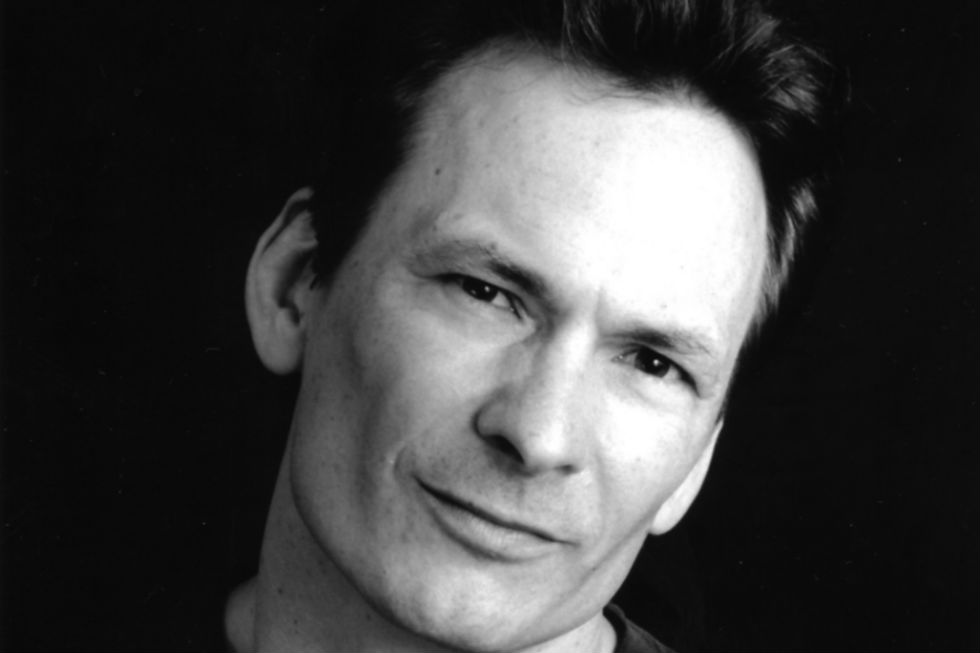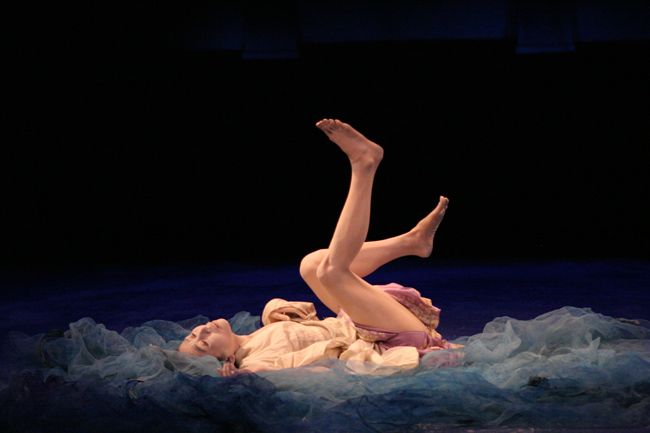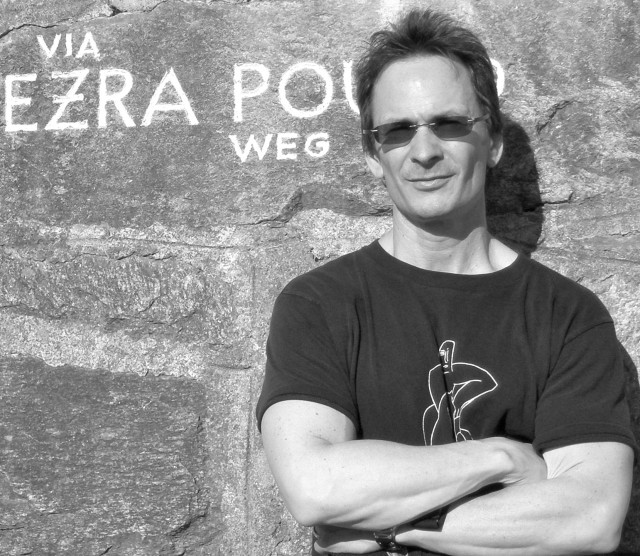“There is no monstrous act that isn’t in all of us” — The Big Interview: Forrest Gander

Fred Johnson speaks to the Pulitzer Prize finalist and pioneer of ecopoetics about being born in the Mojave Desert, translating Pablo Neruda’s lost poems, and the importance of radical, ethical poetry…
Forrest Gander is a man of many talents: a Pulitzer Prize finalist (2012), internationally renowned as a translator, poet, novelist, and critic, Gander excels as academic and artist alike. Celebrated as a pioneer of ecopoetics – the poetry of wilderness, deep ecology or humanity’s relation to nature – Gander’s gentle opposition to traditional forms does not seem at odds with his character. This is a softly spoken, friendly man, one who comes across as a kind of sage or spiritual leader.
Indeed, I’m not convinced Gander could have been anything but a poet, given the vivid anecdotes and idioms he recites in regular conversation. He’s a man you shut up for, one whose every word you hang on. I was lucky enough to catch him in the UK during an unusual writer-in-residence project at Hope Street Hotel, Liverpool, organised by the University of Liverpool’s Centre for New and International Writing.
The Double Negative: You were born in the Mojave Desert and grew up in Virginia. Do you think exposure to these elemental landscapes at a formative age has shaped you and your work?
Forrest Gander: I write a lot about the desert – I was born in the desert, and my mother talked all the time about the desert and was very affected by living there. I’m really drawn to it because it’s one of the places that retains the least trace of the human species, and also because, like poetry, it’s made up of lots of silences. If you pay attention, these silences increase your attentiveness in that you see, in places of stillness, that things are in fact moving, that there are relationships.
So someone like me who’s interested in what Clifford Geertz calls “thick description”, in passing through the limits of description to reveal what’s beneath it – well, that’s what being in the desert is like. And in Virginia, the Blue Ridge Mountains and the forests are extraordinarily beautiful and lush and full of particular smells, like the smell of skunk cabbage and the smell of particular pine trees – it’s the landscape that my heart is fixed on, even though I haven’t lived there for 20 years.
You rather uniquely hold degrees in both literature and geology, and have a reputation as a pioneer of ecopoetics. You’ve written critically about traditional literary presentations which posit nature and the wild as relevant only in regards to human experience, with humanity at the centre of nature. Why do you think it’s important to deconstruct this hierarchy?
Well, take a look at our world. We live in a moment of tremendous ecological crisis because of a sort of greedy sense of the world’s utility, of it being just something for us to use and not something for us to live in among others. This sense is tied to the idea that we’re this thinking animal at the centre of the universe, the Cartesian notion of: “I think therefore I am”. The philosophy that comes after that, which is what really informs my thinking about being, starts with [Edmund] Husserl, who says: “To the things themselves”, and develops into phenomenology, which asserts that there is no possible way to ‘just think’, that your thinking is always engaged with the world. We’re already in contact, already involved in a mutuality that we have to acknowledge, if not for ecological reasons, then for practical reasons.
And where does the individual, the self, or the ‘I’ fit into the natural arrangement you espouse?
I think it’s a romantic notion to think of the individual as separate from communities: every word that we’re using has been spoken by others, and we’re born into language that precedes us and shapes and structures our minds. I think that, like Cormac McCarthy says, books are made from books – likewise, our individuality is made from others and from a connection to others, and I think part of our responsibility as human beings is to acknowledge that debt to others, from which comes empathy, which is the beginning of poetry.
You’ve translated works by such writers as Coral Bracho, Kiwao Nomura, and Aleš Šteger, and in 2013 published Eiko and Koma, a collection of poems describing the dance of the iconic Japanese dancers Eiko and Koma (below). Do you think your engagement with international literature is at all related to your penchant for collaborative and genre-splicing works?
I do – it goes back to that notion of individuality. I think of collaboration as being one social model of engagement with others, in that you have to accommodate someone else and someone else’s imagination and you have to listen into that imagination. I think that’s very much what happens with translation also: you have to disappear – your ego has to disappear profoundly enough that you can hear the music of someone else’s mind. What we’re being offered through coming into contact with otherness across cultures is the possibility of different ways of imagining and of being in the world.

I translated a Bolivian poet named Jaime Saenz who’s very influenced by the Aymara. Now, the Aymara one of the few cultures that have a sense of the future being behind them, so that the word for future is also the word for back, and when they talk about the future they wave backwards. The past, which when they mention they’ll gesture forward, is connected to that conceptual linguistic way of connecting to the world. Just as it is with Saint John of the Cross, when he says: “I entered into unknowing and there I remained unknowing”, he doesn’t start with I, he starts with the verb, entré, because of his Christian vision; in the Spanish Bible it isn’t “In the beginning there was the word” – it’s “In the beginning there was the verb”. God is the verb, and that’s John’s way of showing that it’s the verb that controls his life. I’m really interested in the way that language structures reveal ways of thinking about the world.
What do you think the value of collaborative and inter-genre artworks is compared to less experimental pieces? How does your tendency toward experimental forms tie into your vision of the purpose of art, or what it should achieve?
I’m not crazy about the word ‘experimental’ – when Pound says: “make it new”, Jack Gilbert notes that he forgets to say: “make it significantly new”. There’s a lot of ‘making new’ that I don’t think is all that interesting; it’s just novelty. But I do think that exploring between the ruts of our perceptions and writing habits we can find our way to places that open up feelings and ways of seeing. So I’m interested in exploration, but when William Carlos Williams says: “the sonnet is a fascist form”, I think that’s bullshit. I’m really interested in a lot of innovative sonnet writers, but I don’t think we can write the same sonnet now that Shakespeare wrote, or that it can register in our culture in the same way.
To take that answer and re-frame it in terms of ecology and activism: you’re clearly concerned with ecology, but your poetry is not didactic. What do you think your ecological poetry is for?
If you want to be didactic, then I think essays are really good forms for that. Poetry can be didactic too, but it offers the possibility of different kinds of meaning. Partly I feel that what I would like to happen in my poems (so much as intentionality has to do with anything) is for the richness of relationships between subjectivity and world and the sort of mutuality of that relationship to generate a different way of seeing; a way different from how Western people have perhaps been seeing their roles in the world. It’s poetry, so it’s limited in how it changes the world, but it still changes the world.
It’s been 25 years since your first collection, Rush to the Lake, was published by Alice James Books. Your poetry has changed considerably since then – reading Citrus Breeze, Loiter, or The Moment When Your Name is Pronounced retrospectively, the poetic voice seems explicitly masculine and detached. How do you think your voice has matured since then?
I’m embarrassed you even read that first collection, I thought it was buried! It’s interesting that you say that – I’m coming of age when I’m writing that book, so I am indeed taken up with questions of how to be a man. But I grew up raised by women in a house of women, and, while I don’t necessarily ascribe to any essentialism, when I came into contact with men’s minds (which didn’t happen really until I went to college), I had no idea what they were talking about, no idea how they were talking. The way they were thinking was so different from my own way. I think that partly the change in my writing has been an acknowledgement of how my mind does work – which isn’t necessarily logically!
Although your catalogue of translations sheds light on some of the poets and writers you admire, are there any particular poets, writers, artists, or even ecologists who you feel have influenced your work?
Yeah, there’s Gōzō Yoshimasu, and the dancer Eiko of Eiko and Koma, and the Chilean writer Raúl Zurita. All three are people whose work has a strong ethical standpoint. Yoshimasu has been going to sites in Japan that were devastated by the Fukushima disaster, rolling out his scroll, and listening and writing in response to what the wind says, and Eiko has done work related to the Cambodian genocide and now has been doing work in the wake of Fukushima also. She’s been going over there, exposing herself, getting permission to go into this radioactive area while barefoot and wearing this kimono, and she makes some kind of visceral connection with the loss that took place there.
Raúl Zurita started because he was imprisoned by Pinochet and tortured, and he comes out of that experience with this radical sense of empathy for others. He writes about monsters and people dropping bombs, but he writes in a way that he also sees himself as them: there is no monstrous act that isn’t in all of us. That part of being fully human and of making ethical choices is recognising your responsibility for that monstrous potential.

Those artists you mentioned – Yoshimasu, Eiko, and Zurita – all seem to me to be preoccupied with the idea that ethics and spirituality are vital to good art. Do you think art ought to be ethical and spiritual?
I would never use ‘should’ or ‘ought’, but I’m definitely more interested in George Oppen than Phillip Larkin. I think art can be funny and joyous, but I’m interested in profound experiences. There’s an American art critic who quotes a painter – I can’t remember who [it's Ed Ruscha (Ed.)] – who says that when you see bad art it’s like: “Wow!… Huh?”; and when you see good art it’s: “Huh?… Wow!” That ‘huh’ part goes back to your question about my interest in innovative formal structures, but I’m interested in the ‘wow’ and the awe too; there’s this beautiful thing that Lao-Tzu says, that “those who are not in constant awe, surely some great tragedy will befall them.” It is a brief time we have here.
You’re working on translations of Pablo Neruda’s recently discovered lost poems – what can you tell us about this hugely exciting project? Is that priority number one at the moment?
As someone who’s very interested in translations of contemporary writers, and as someone who teaches translation, I’ve been saying for years that the last thing we need is more Neruda translations – there’s so many great poets to turn our attention to and a lot’s happened since Neruda. So when I heard about these poems I thought they were just milking the last purple juices out of the Neruda estate and they were going to be some crumby stuff that he never wanted published and that he’d hidden away. But when the Spanish edition came out, I read these reviews from Latin America and Spain and they were astonishingly good – I couldn’t believe it. But I looked at the poems, and they’re astonishingly good! He was just such a great poet. Even some of those that aren’t quite finished – some end with a comma or something – are really moving. They’re political, they’re love poems, there’s a poem that’s unlike anything else Neruda’s written before. It convinced me that I wanted to translate them.
Thanks Forrest!
Fred Johnson
Then Come Back: The Lost Neruda Poems, translated by Forrest Gander, is out now through Copper Canyon Press
Read about Forrest Ganders’ books, translations, reviews and performances on his website
Read more about the University of Liverpool’s Centre for New and International Writing, including their Miriam Allot Visiting Writers events, on their website and on Twitter @WritingatCentre
WATCH Forrest Gander talk about his Creative Process on Youtube





